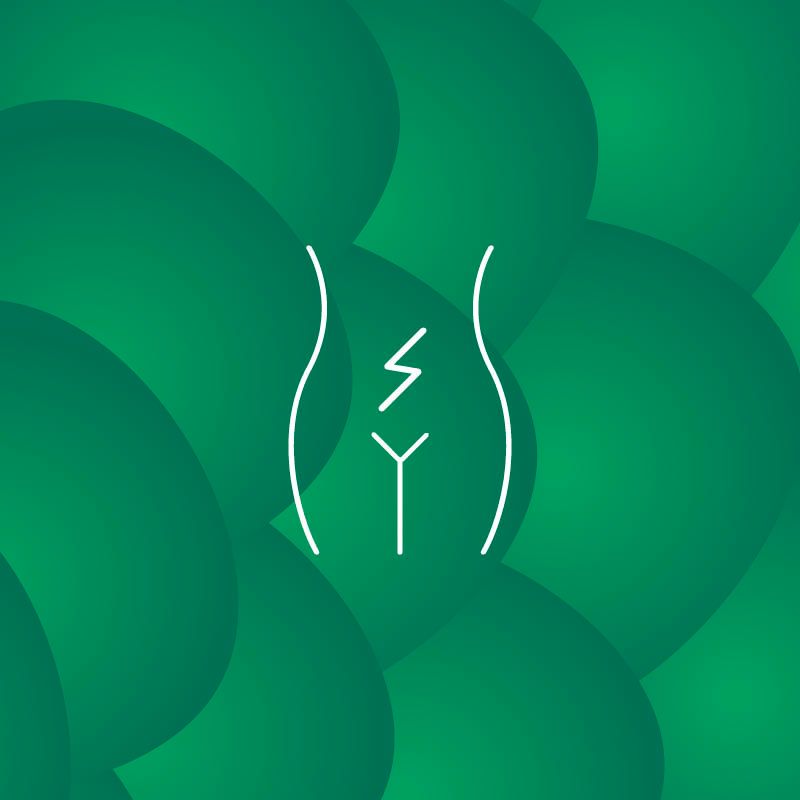
The menopause can cause various symptoms such as hot flushes, sleep disorders, mood swings and increased tiredness.
The menopause marks the end of a woman's fertile years and is a natural biological process. During this time, the body gradually stops producing the female sex hormones oestrogen and progesterone. This hormonal change can last for several years and is often accompanied by physical and emotional changes.
Not every woman needs medical treatment - many complaints can be managed well with lifestyle changes and targeted support.
Typical symptoms of the menopause
The symptoms vary greatly from woman to woman. Common symptoms are
- Hot flushes and night sweats
- Sleep disorders
- Mood swings, irritability or depressive moods
- Dry skin and vaginal dryness
- Decreased libido
- Weight gain
- Joint and muscle pain
- Concentration and memory problems
Diagnostics
The menopause is defined retrospectively - as a period of twelve months without menstruation. The phase before this, in which cycle changes occur, is called the perimenopause.
Hormone testing is not always necessary. A careful medical history and physical examination help to correctly classify complaints and find individual solutions.
Therapy and support in our practice
We offer holistic care for women going through the menopause:
- Individual advice on lifestyle, nutrition, exercise and stress management
- Hormonal and non-hormonal therapies to alleviate symptoms
- Prevention - how you can strengthen your health in the long term
- Support with psychological stress and changes in everyday life
Our aim is to provide you with competent, empathetic and evidence-based support - so that you can shape this phase of your life with confidence and well-being.
Weight gain during the menopause - causes and nutrition tips
The drop in oestrogen levels changes the metabolism: energy consumption drops, muscle mass decreases and fat is preferentially stored in the abdominal area. This can lead to weight gain - even if eating habits remain the same.
A Mediterranean diet with lots of vegetables, healthy fats and plant-based proteins can help stabilize weight and promote general well-being.
Hot flushes - gentle relief through nutrition
Hot flushes are caused by hormonal fluctuations and affect many women during the menopause. A natural way to alleviate this is through diet - in particular through phytoestrogens, plant substances with an oestrogen-like effect.
Foods with phytoestrogens:
- Soy products (tofu, tempeh, soy milk)
- Linseed
- Pumpkin seeds
- Strawberries and other berries
Additional measures:
Stress reduction through yoga, meditation or breathing exercises
Regular exercise
Avoid triggers such as alcohol, spicy foods and caffeine
Important nutrients during the menopause
Targeted nutrition can help to alleviate symptoms and strengthen health. This is particularly important:
Calcium & vitamin D - for strong bones
Calcium-rich foods: dairy products, broccoli, almonds
Vitamin D: sunlight, oily fish, eggs
Proteins - for maintaining muscle mass
Vegetable: pulses, tofu, quinoa
Animal: eggs, fish, yogurt
Omega-3 fatty acids - anti-inflammatory and heart-protective
Sources: Linseed, chia seeds, walnuts, fatty fish
Dietary fiber - for healthy digestion
Wholemeal products, vegetables, fruit with skin, pulses
Online appointment booking
Would you like an appointment? It's quick and easy with our online booking tool - we look forward to hearing from you!
Learn more
Here you will find further information on the specialist area of gynecology.




